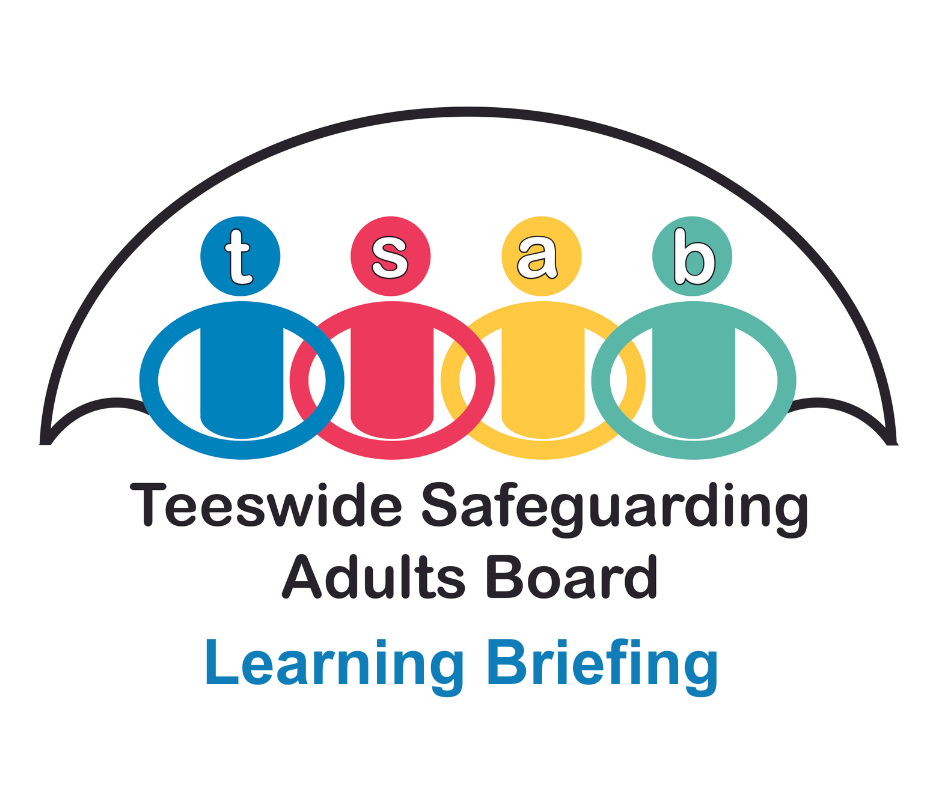
1. Background
Jack was a 20 year old White British male who died alone in a hotel room in January 2023. He was found knelt on the floor at the side of the bed with drugs paraphernalia present. No third party involvement was suspected. He had been placed in the hotel under the severe weather protocol having been no fixed abode. He was known to both Stockton-on-Tees and Middlesbrough Council’s Safeguarding Teams. There were concerns regarding self-neglect due to mismanagement of his diabetes, substance use disorders and homelessness. He died from diabetic ketoacidosis.
2. Theme 1: Diabetes
Diabetes was the crucial factor in Jack’s death. Nonetheless, significant efforts were made to support him to manage his diabetes. His care highlights the need for ongoing training and messaging to highlight that both poorly managed diabetes and some patterns of substance use are a form of self-neglect and that there is a need to raise safeguarding concerns about such individuals. Similar messages emerged from the Teeswide Josh SAR.
3. Theme 2: Transition
Jack had only been in adult services for two years when he died. Prior to that he had had extensive engagement with a range of children and young people’s services, in particular he was a Child In Need. All of these inputs ended when Jack reached 18; whereas, if he had been a looked after child, support would have continued. Jack highlights that some young adults may benefit from a continuation of the more intensive support that they received in childhood. These will be those at the greatest risk. Jack suggests that young people with poor management of their diabetes and, in particular, poor management plus substance use are particularly at risk and may require more intensive follow up.
4. Theme 3: Substance Use Disorders
Jack is a reminder of the importance of the widespread use of drug and alcohol screening tools such as DUDIT or AUDIT by all generic frontline workers. This will ensure that problems are identified and addressed at the earliest point. However Jack also highlights the role of specialist substance use services. Although Jack’s substance use remained unresolved at the end of his life, some of the interventions used – harm reduction and assertive outreach appeared to be having a positive effect and should be more available for this client group.
5. Theme 4: Individuals that services find difficult to engage
The fundamental challenge with Jack was not that he had a drug use disorder or diabetes or that he was homeless. The real challenge was that services found it difficult to engage him into the care he needed for those problems. Engagement is the fuel on which any care process runs. Without client engagement, care cannot progress. This highlights the need for a published, multi-agency procedure to guide professionals in dealing with client non-engagement. To make that procedure useful it will need to provide guidance on:
- how to judge the level of risk or vulnerability that warrants ongoing, assertive action;
- how to practically intervene with individuals that services find difficult to engage; and
- how to escalate these concerns and where they should be escalated to.
It will need to cover themes including:
- Multi-agency management
- Assertive outreach
- Guidance on engagement techniques
- The need for a longer term view of the situation.
6. Theme 5: Housing
In the short period of his adult life, Jack became very difficult to house. He moved between several temporary accommodation provisions. His care highlights some very specific issues including the need for specific accommodation for people with diabetes and for people with challenging presentations. It is a reminder (as was the earlier Josh SAR) of the importance of adhering to national guidance on discharge from Hospital to Homelessness. It also flags up the problems that can be posed when someone is moved to a neighbouring authority because of accommodation needs. This can destabilise existing support networks.
7. Other Themes:
The SAR highlights a number of other themes that need to be addressed:
- Professional need to remember that poor management of diabetes (coupled with substance use) may be self-neglect.
- Mental Capacity decisions need to consider whether someone can both take a decision and put it into effect – Jack often failed to do this.
- ·Cognitive impairment due to head injuries may be impacting on the behaviour of people like Jack.
- Smoking, particularly in combination with diabetes has negative effects on health and wellbeing. Professionals in all settings, should continue to address this issue with relevant individuals.
What Next?
Key recommendations include:
- The need for local discussions on whether there are specific groups of young people (other than looked after children) who require ongoing support as they transition into adulthood.
- Improving the local response to individuals that require safeguarding but whom agencies find difficult to engage.
- Ensuring that the Duty to Refer in the Homelessness Reduction Act 2017 is being consistently and appropriately used by all appropriate services.
- Reminders that both poorly managed diabetes and some patterns of substance use are a form of self-neglect.
You can also look for further information by reading:
- the full Jack SAR report
- the Josh SAR
- the briefings on the SAB website (e.g. Duty to refer, mental capacity, self-neglect)
Version: 1
Published: July 2024